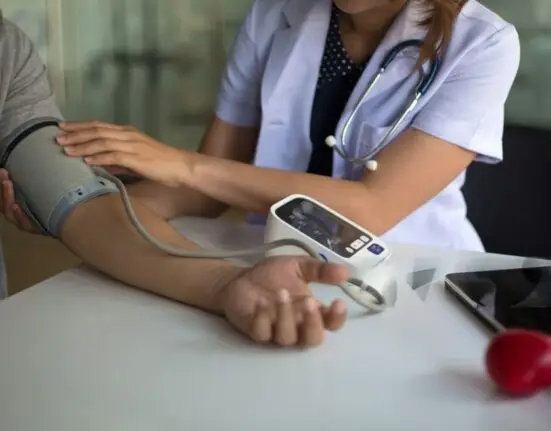“Heart attack” are two words that can scare a lot of people. But what exactly is a heart attack? Well, your heart works to pump blood all day and all night. A heart attack is when part of your heart muscle dies because not enough blood is reaching it. When very little or no blood reaches your heart muscle, then that muscle won’t have enough food and oxygen to keep working. Can you imagine what would happen if your most vital organs stopped working properly? Unfortunately, this is the harsh reality for 17.9 million people who die each year due to heart diseases, one of which is heart attacks. Particularly, males above the age of 45 and females above the age of 55 are at a substantial risk. This risk increases if other contributing factors are present, such as smoking, high blood pressure, high cholesterol, diabetes, obesity, physical inactivity, and an unhealthy diet. However, if detected just in time, heart attacks can be managed by surgical procedures and certain medications. Thankfully, your body can give you some signs to indicate an upcoming heart attack.
1. Chest Discomfort
Have you been feeling persistent chest discomfort? Does your chest feel tight or even painful? Pressure, tightness, and pain in your chest, especially if accompanied by the other symptoms mentioned in this video, can be a strong predictor of a heart attack. The main cause of chest discomfort before a heart attack is myocardial ischemia. Myocardial ischemia is when barely enough oxygen and nutrients are reaching your heart muscle. But how can this cause pain? You have nerve endings in your heart that become activated at the onset of myocardial ischemia and send signals to your brain, which interprets these signals as pain. The result is you feel chest pain. Bear in mind that chest discomfort is a characteristic sign of a heart attack, so make sure you never take it lightly.
2. Shortness of Breath
Do you find yourself breathing heavily after doing your normal activities, like climbing a few flights of stairs? Shortness of breath has been considered an indicator of heart diseases for a tremendously long time. If you can’t breathe, there’s a good chance that your heart can’t either. As you do even mild physical activity, your heart is required to pump more blood to supply more oxygen to your muscles. But if your heart muscle isn’t properly nourished, a basic task like this becomes extremely difficult for it. It becomes less effective at pumping blood to meet the body’s oxygen demands. To compensate for this lack of oxygen, your body increases your breathing rate to allow more oxygen to enter your body, resulting in breathlessness. Moreover, your lungs and your heart are connected. If your heart muscle can’t pump blood effectively, that blood will accumulate in both your heart and lungs. The problem is that fluid buildup in the lungs will impair the process of gas exchange. In other words, you won’t be breathing properly, so you will feel shortness of breath. Not to mention, the state your body is in before a heart attack is extremely stressful. Stress activates your sympathetic nervous system, which is responsible for your body’s response to stress. One of its effects on the body is increasing your breathing rate, so you’ll find that you’re breathing short, rapid breaths.
3. Nausea and Abdominal Discomfort
Constant nausea, indigestion, or stomach pain are all symptoms that can come before a heart attack, even a month prior. We know what you’re thinking: what does your stomach have to do with your heart? Well, there is a nerve in your body called the vagus nerve, and it’s connected to both your heart and abdomen. Lack of oxygen and nutrients in your heart muscle stimulates the vagus nerve. Since it’s also linked to the organs in your abdomen, it causes abdominal discomfort, symptoms such as nausea, and vomiting. In addition, the stressful conditions your body is in before a heart attack activate your sympathetic nervous system. This further contributes to the presence of nausea and abdominal discomfort.
4. Pain in Various Parts of the Body
Pain, numbness, tingling, or discomfort in the arms, back, neck, jaw, or stomach are all alarming signs that may predict a heart attack. The most common site of pain is the chest. This pain behind the breastbone can also extend to the arms, shoulders, back, neck, jaw, or upper abdomen. Usually, the left arm is the one affected, but in some cases, both arms are involved. This is because your heart and arms share common nerves, so the pain in your heart is referred to your arm. Additionally, if the pain radiates to the shoulders or back, it’ll be felt between your shoulder blades.
5. Lightheadedness and Dizziness
Feeling dizzy or lightheaded, especially when standing up suddenly, could be a sign of poor blood circulation. Poor circulation can result from an ischemic heart that isn’t pumping blood efficiently. Lightheadedness and dizziness can be especially felt when getting up from a sitting or lying down position. This is called orthostatic hypotension, which occurs due to a sudden drop in blood pressure. But why does your blood pressure suddenly decrease? Well, this is because a weakly pumping heart can’t keep your blood pressure within the normal range. This symptom is most prominent when you get up from bed in the morning. If you wake up feeling dizzy and fall back to your bed, it’s better to get your heart examined by a professional.
6. Fatigue
Contrary to what has been normalized nowadays, excessive fatigue or a feeling of weakness that isn’t alleviated by rest isn’t normal. It can point to a plethora of underlying conditions, one of which is a heart attack. In the events before a heart attack, your heart muscles aren’t receiving enough oxygen and nutrients. This won’t allow them to do their blood-pumping job, so less blood will reach your vital organs such as your brain and muscles. This will cause you to feel fatigued and experience generalized weakness in your body. Bear in mind that fatigue alone is a general symptom that can indicate numerous conditions. However, if fatigue is paired with other symptoms like chest pain and shortness of breath, it could be a strong indicator of an upcoming heart attack.
7. Sleep Disturbances
Have you been having trouble falling asleep or staying asleep? Insomnia, excessive fatigue, or frequent disturbances in sleep patterns, along with the earlier symptoms we discussed, can strongly suggest a heart attack. Sleep disturbances can occur because of other heart attack signs. Someone with chest pain, abdominal discomfort, and pain in different areas of their body will experience difficulty sleeping. The pain may also wake the person up at night, interrupting their sleep cycle.
8. Anxiety
Even though anxiety has sadly become a common condition in this modern world we live in, you shouldn’t ignore it if you fear the risk of having a heart attack. The main cause of anxiety before a heart attack is the activation of your sympathetic nervous system. This induces anxiety by stimulating the adrenal glands to release stress hormones into the bloodstream. These hormones are adrenaline and noradrenaline. If the person is suffering from worrying symptoms such as chest pain, their anxiety levels will surely increase. More signs of anxiety include increased worrying, avoidant behavior, restlessness, and irritability.





Leave feedback about this